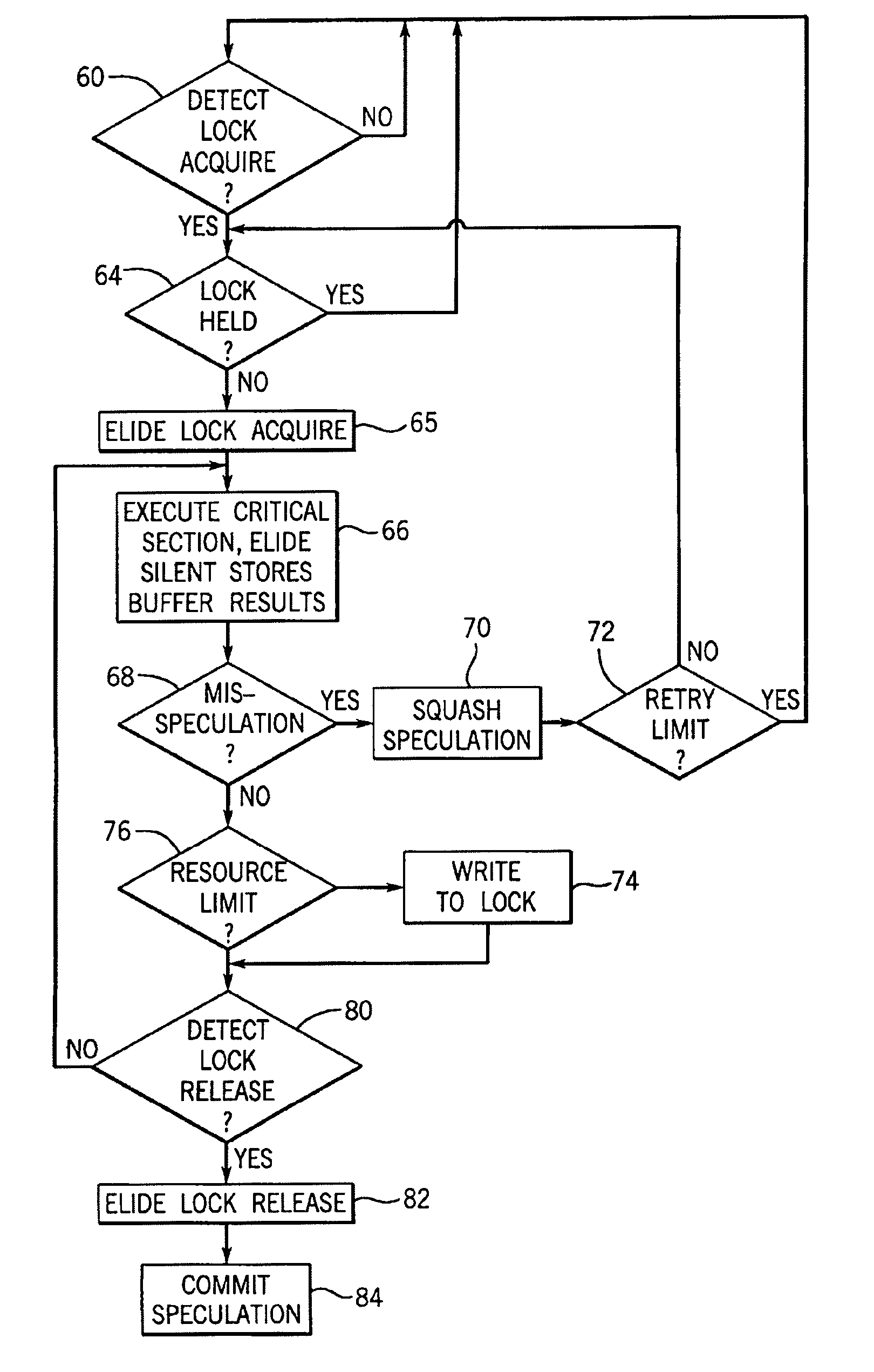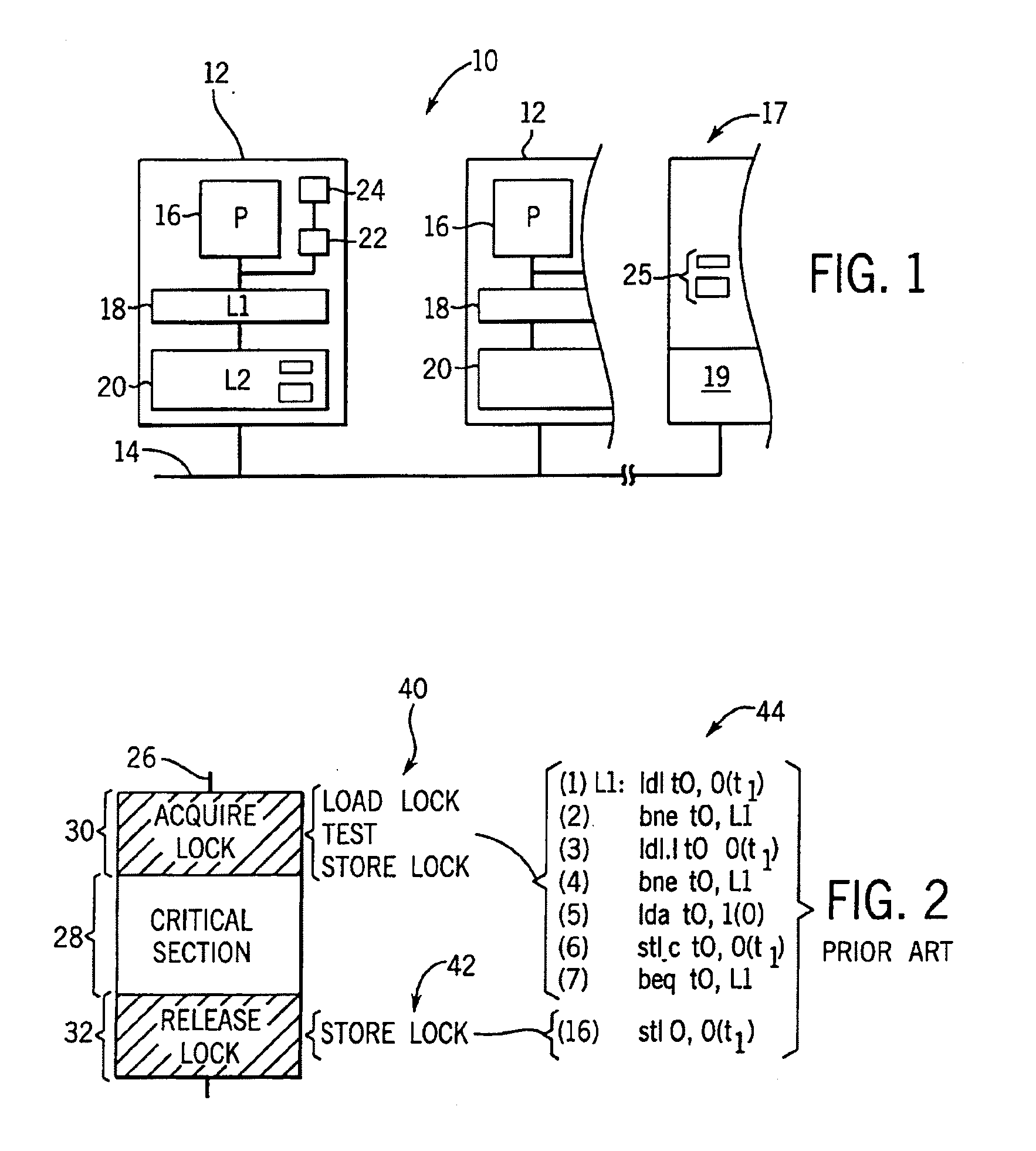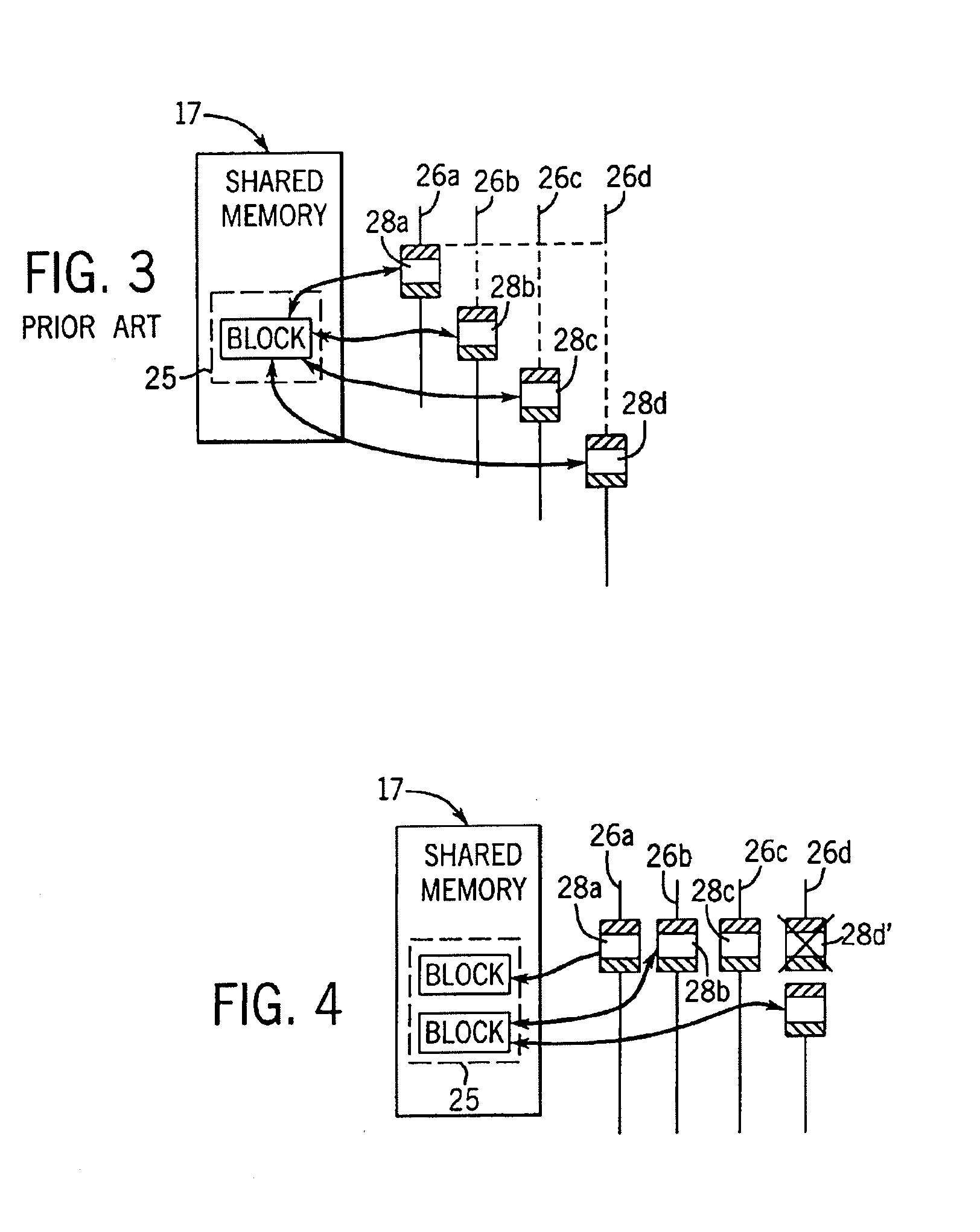Concurrent Execution of Critical Sections by Eliding Ownership of Locks
a technology of locking and critical sections, applied in the direction of memory adressing/allocation/relocation, multi-programming arrangements, instruments, etc., can solve the problem that the steps of acquiring and releasing locks are unnecessary
- Summary
- Abstract
- Description
- Claims
- Application Information
AI Technical Summary
Benefits of technology
Problems solved by technology
Method used
Image
Examples
Embodiment Construction
[0039] Referring now to FIG. 1, a multiprocessor, shared memory computer 10 suitable for use with the present invention includes a number of processor units 12 connected via a bus structure 14 to a common, shared memory 17. The shared memory 17 is depicted logically as a single device, but in fact will often be distributed among the processor units 12, according to methods well known in the art.
[0040] Processor units 12 include processor 16 communicating with an L1 cache 18, an L2 cache 20, and a cache controller 22 as is well understood in the art. The shared memory 17 includes a memory controller 19 executing standard cache protocols to allow copying of shared data structure 25 within the shared memory to various ones of the L2 caches 20 of particular processor units 12. The processor unit 12 may be granted “owner” status for writing to memory or “sharing” status allowing for reading of the memory. Change of status of the caches 20, for example, when another cache 20 seeks owners...
PUM
 Login to View More
Login to View More Abstract
Description
Claims
Application Information
 Login to View More
Login to View More - R&D
- Intellectual Property
- Life Sciences
- Materials
- Tech Scout
- Unparalleled Data Quality
- Higher Quality Content
- 60% Fewer Hallucinations
Browse by: Latest US Patents, China's latest patents, Technical Efficacy Thesaurus, Application Domain, Technology Topic, Popular Technical Reports.
© 2025 PatSnap. All rights reserved.Legal|Privacy policy|Modern Slavery Act Transparency Statement|Sitemap|About US| Contact US: help@patsnap.com



